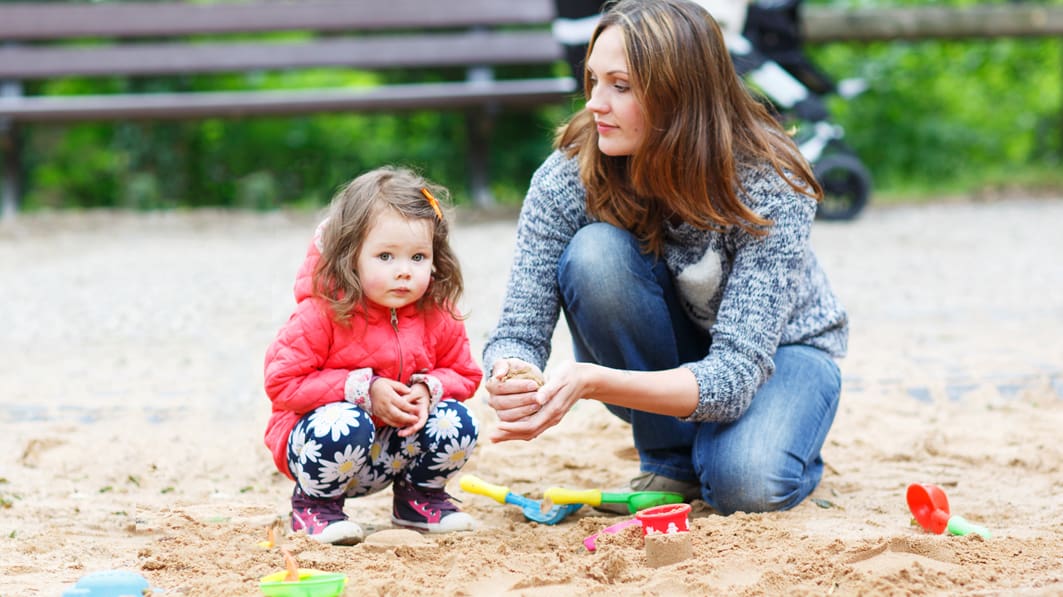Consider these ideas for creating a happy playtime for your children:
Playground Playmates
On the playground, my shy 3-year-old daughter would look the other way when other children tried to
talk to her. So I played with her, and when other children wanted to play also, I welcomed them to
join in. As soon as I felt my daughter was comfortable, I let the children play without me, though I
remained nearby in a place where my girl could make eye contact if she felt uncomfortable.
—Veronica Teodorov Ferreira
Surprise Adventures
As I drove my 4-year-old to a friend’s house, I got a call that canceled the playdate. My son cried
inconsolably. That was the last time I told my young kids where we were going, especially for events
that have the possibility of cancellation. Ever since, I’ve called such outings “adventures.” I
simply tell them what to wear and when we will get in the car. Now, if there’s a last-minute glitch,
they’re none the wiser. I simply change the plan and keep their sense of excitement intact.
—Claire McGarry
Play like you mean it
When our daughter was still an infant, my wife and I established “playtime” by using simple exercises, such as moving her legs and arms to build her mobility. We focused on eye contact to help her with recognition of people and facial expressions. And a focus on touch helped to deepen our bond.
As our daughter grew, we began dedicating time each day to play together. During this time, we would set aside phones and computer distractions and concentrate only on her. Though it was tempting to direct my daughter’s playtime, we tried to let her choose her own activities. At times she seemed content to play with her pacifier rather than a fancy toy that promised to raise her IQ, so we let her. No matter what we were doing, spending time together was the important thing.
—Jeremy Nowicki
Conflict with friends
My son came home from kindergarten brokenhearted because a friend was teasing him.
I wanted to say, “You don’t need to be friends with people who act like that.” But after some thought, I decided to try something different; I encouraged my son to invite that person over for a play date.
This is what happened:
- I was able to observe the other child’s behavior firsthand.
- Because my son was playing on his home turf, he was more confident as he built the friendship.
- During snack time, I was able to casually mention the conflict. We talked through what happened, why it happened and how they could handle things differently next time.
I have used this approach many times over the years, and it has not only helped me know my children’s classmates better, but also taught my children about loving others amid conflict.
—Jennifer C. Hoggatt
Break the ice
On the first day of soccer camp, my daughter didn’t recognize anyone. After signing her in, I sat with her on the sidelines and noticed other nervous-looking children hovering near their parents. I thought, They just need someone to break the ice.
With calculated nonchalance, I asked Meghan if she wanted to kick the ball.
She nodded eagerly.
Sighing, I said, “I don’t have the right shoes. But that girl over there looks about your age. Why don’t you invite her to kick the ball around with you instead?”
“I can’t!” Meghan said. “I don’t know her.”
“Let me show you how to change that,” I said.
I introduced myself to the girl and then asked if she would kick the ball around with my daughter.
The other girl gave a shy nod. Within minutes, the two were booting the ball and laughing as if they were friends.
Because I continued to model introductions, Meghan now understands how to reach out — and often, in new situations, she is the first to say, “Hi. I’m Meghan. Would you like to play?”
—Lori Z. Scott














